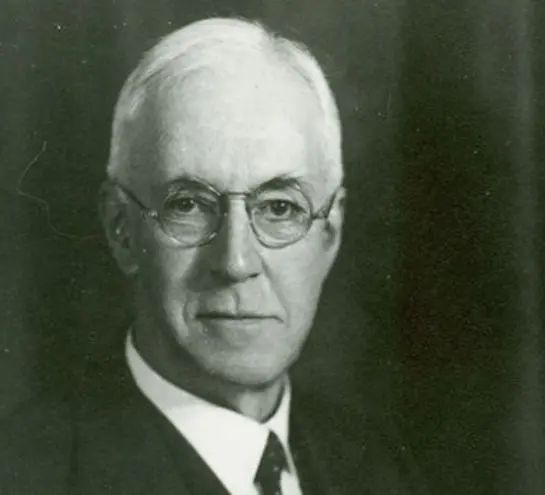About
Ri positions
- Fullerian Professor of Chemistry, 1942-1946
- Superintendent of the House, 1942-1946
- Director of the Davy-Faraday Research Laboratory, 1942-1946
Hallett Dale was a medical doctor and researcher. His research topics included work into the effects of poisoning and anaphylactic shock, he also helped to standardise drugs and anti-toxins. In 1942 he succeeded William Henry Bragg at the Ri as Fullerian Professor of Chemistry, Superintendent of the House and Director of the DFRL and held all these posts until 1946.
Biography
Born in London, he attended Leys School, Cambridge, before studying natural sciences at Trinity College, Cambridge. Moving to London he studied medicine at St Bartholomew's Hospital and at University College. He also worked in Frankfurt for a short time, with the pioneering medical researcher Paul Ehrlich.
In 1904 Dale was back in England and obtained a post at the Wellcome Research Laboratories, becoming Director two years later. In 1914 he joined what became the National Institute for Medical Research in Hampstead and in 1928 became its first Director, a post he held until retirement in 1942. There his research centred on studying the effects of chemical transmitters in physiological, nervous and neurological systems. He also ensured that this research was applied therapeutically and he provided the first international standard for insulin.
His subsequent appointment to the Ri was seen explicitly as a caretaker wartime role and he retired as soon as he could after the end of the war. He was supportive of Kathleen Lonsdale's efforts to keep X-ray crystallography research going in the laboratory. Between 1938 and 1960 Dale was Chairman of the Wellcome Trust. During the 1939-1945 war he was Chairman of the Scientific Advisory Committee to the War Cabinet and served on the committee responsible for the atomic bomb programme. After retirement, he served on a large number of government committees and played leading roles in a number of learned and medical societies.
